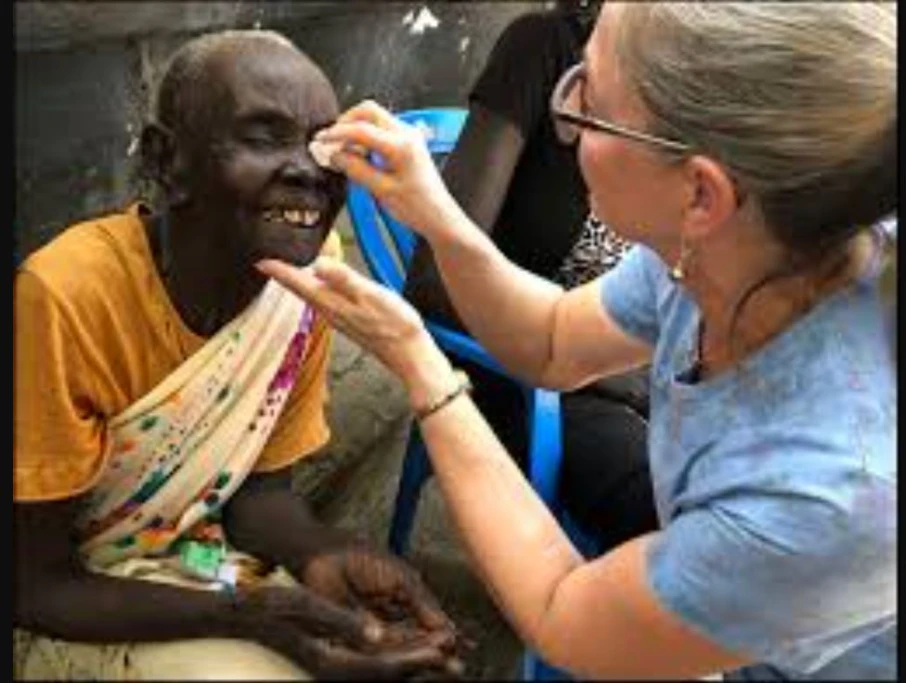
People suffering from trachoma and cataract disease are being encouraged to register for free eye surgery operations in Kapoeta North County, Eastern Equatoria state.
The cataract services are provided by the Carter Center in collaboration with the National Ministry of Health.
Trachoma is a bacterial infection that affects the eyes and it is caused by the bacterium Chlamydia trachomatis. It is a contagious infection that is spread through contact with the eyes, eyelids, and nose or throat secretions of an infected person.
It is a public health problem in 42 countries, and is responsible for the blindness or visual impairment of about 1.9 million people.
Blindness from trachoma is irreversible. Surgery is often a treatment during the blinding stage (trachomatous trichiasis).
Kori Sixtus, County Health Director is encouraging people suffering from the infection to turn up for the cataract treatment.
Patients can report to Riwoto Primary Health Care Center for registration and treatment.
“The target number which they need is 500 to 1,000 (patients) who are going to do surgery. After 7 or 8 days, they will go to another County,” he said.
Sixtus added that the services will also cater for those who can not see clearly.
“They will get medication and also those who are short-sighted will be given eye glasses.”
Emmanuel Lolimo Epone, Kapoeta North County Commissioner appreciated the intervention.
“You know restoring sight is very important… we want to have a healthy and productive citizenry in Kapoeta North County, so by having this activity of restoring sight for those who are partially blind will enable them contribute to the society,” he said.
“My appeal to the general public is that this is an activity which comes once a time and it’s free of charge.”
The operation is expected to end on 30th November this year.
Trachoma infection spreads through personal contact (via hands, clothes, bedding or hard surfaces) and by flies that have been in contact with discharge from the eyes or nose of an infected person. With repeated episodes of infection over many years, the eyelashes may be drawn in so that they rub on the surface of the eye. This causes pain and may permanently damage the cornea.
The World Health Organization also recommends antibiotics to clear infection.